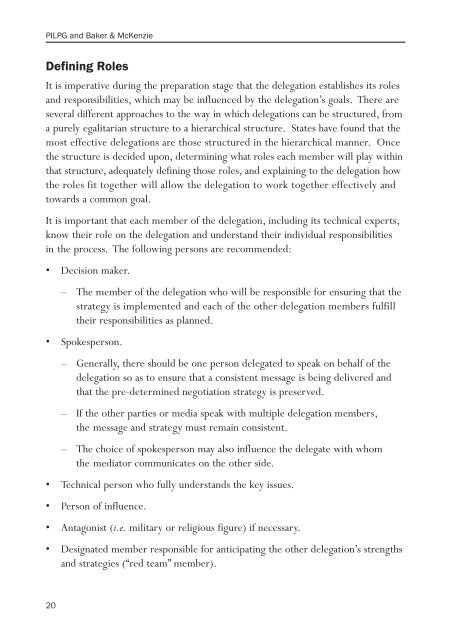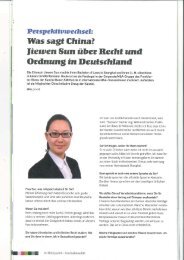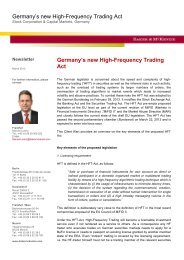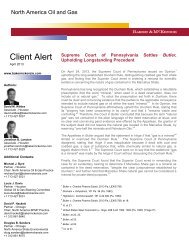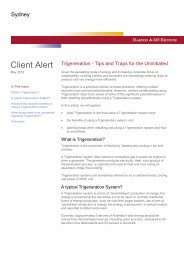The International Negotiations Handbook - Baker & McKenzie
The International Negotiations Handbook - Baker & McKenzie
The International Negotiations Handbook - Baker & McKenzie
You also want an ePaper? Increase the reach of your titles
YUMPU automatically turns print PDFs into web optimized ePapers that Google loves.
PILPG and <strong>Baker</strong> & <strong>McKenzie</strong><br />
Defining Roles<br />
It is imperative during the preparation stage that the delegation establishes its roles<br />
and responsibilities, which may be influenced by the delegation’s goals. <strong>The</strong>re are<br />
several different approaches to the way in which delegations can be structured, from<br />
a purely egalitarian structure to a hierarchical structure. States have found that the<br />
most effective delegations are those structured in the hierarchical manner. Once<br />
the structure is decided upon, determining what roles each member will play within<br />
that structure, adequately defining those roles, and explaining to the delegation how<br />
the roles fit together will allow the delegation to work together effectively and<br />
towards a common goal.<br />
It is important that each member of the delegation, including its technical experts,<br />
know their role on the delegation and understand their individual responsibilities<br />
in the process. <strong>The</strong> following persons are recommended:<br />
• Decision maker.<br />
– <strong>The</strong> member of the delegation who will be responsible for ensuring that the<br />
strategy is implemented and each of the other delegation members fulfill<br />
their responsibilities as planned.<br />
• Spokesperson.<br />
– Generally, there should be one person delegated to speak on behalf of the<br />
delegation so as to ensure that a consistent message is being delivered and<br />
that the pre-determined negotiation strategy is preserved.<br />
– If the other parties or media speak with multiple delegation members,<br />
the message and strategy must remain consistent.<br />
– <strong>The</strong> choice of spokesperson may also influence the delegate with whom<br />
the mediator communicates on the other side.<br />
• Technical person who fully understands the key issues.<br />
• Person of influence.<br />
• Antagonist (i.e. military or religious figure) if necessary.<br />
• Designated member responsible for anticipating the other delegation’s strengths<br />
and strategies (“red team” member).<br />
20


